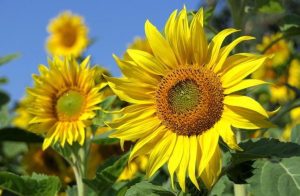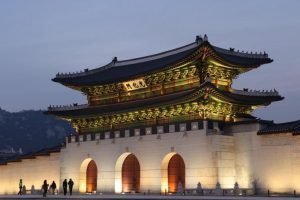“So, every morning, after the monastery Eucharist, the mystery of the risen Christ who takes your soul, here I am living it in the streets and at the bus station of Midelt”. Father Renato Zilio, a Scalabrinian, asks himself: “How could we ever look the other way?”
With mystical, unparalleled slowness, the monk gradually elevates the host of Christ. An absolute, contemplative silence, that of the tiny assembly of faithful, accompanies him. After all, silence is omnipresent here. Concrete and spiritual. You can touch it with your hand in this small Berber monastery, with its ochre colour that smells of desert.
It hosts, in fact, five monks of the same order as Tibhirine, on the plateau of Midelt, at 1,500 meters in an entirely arid, remote and desert region. But it will immediately seem like an oasis of peace, prayer and solitude… “Solus cum solo” (alone with the Alone), as Newman wrote, speaking of the face-to-face encounter of man with God. You experience it here, in the land of Islam.
Then, paradoxically, after the morning Eucharist, I meet Christ along the streets of Midelt. Or rather, you meet “the wounds on his own flesh” as Pope Francis would say.
They are the young black-skinned sub-Saharan migrants, transported here continuously by the border police, after a very long bus journey of over five hundred kilometres. Poorly dressed, malnourished, hungry – but extremely brave – at the crossroads, they ask drivers for a dirham. They wander about and sleep outside like animals to collect the necessary amount and take the bus to Casablanca or Rabat, where they usually live.
Together, then, they go to buy food or medicines. Yes, a touch of humanity. The gospel of the Good Samaritan. Even if their dream, fixed in their minds, is to reach Spain, to go to Europe.
You will then ask Ibrahim, one of them, with his sweet but suffering face, how he managed to leave home, from Guinea… “It was difficult”, he will tell you. “But only when I was far from home did I call my mother to tell her I had left. There is no hope here.” And she could only say to him, crying, ‘Good luck in your adventure, my son.’ Words that he carries with him and always repeats – the wish of a crying mother is like a last will and testament – in this authentic adventure, hard and unimaginable. Yes, made of hardship, violence, hunger and infinite nostalgia. He would never have thought of dragging himself here and there in this way – between Mali, Algeria and Morocco, between deserts and borders – discovering, however, in himself, incredible courage.
In this “Jubilee of Hope”, here they are, one might say, the true masters of hope! They hope with all the fibres of their soul for a more just, more fraternal and supportive world. They hope for it with all the muscles of their body, when they climb – almost always in vain – on the seven-metre-high barrier with Spain, made of fences, cameras, and steel blades. Baring their arms or legs, they also shamelessly show you the bites of the guard dogs at the border, “But one day it will come!” they will repeat with unheard-of hope. How many times have you tried? “Countless times, … I have lost count,” they answer, with an inner strength that surprises you. “Every choice is an act of courage,” Susanna Tamaro writes again. But this one far surpasses the others.
So, every morning, after the Eucharist in the monastery, the mystery of the risen Christ who takes your soul, here I am living it in the streets and at the bus station in Midelt. Together with Christ and his endless Via Crucis, destined to last until the end of time.
Thus, the Jubilee door of hope of this monastery in the heart of Islam opens wide to the hope of a humanity thirsty for dignity and brotherhood. Missionary disciples of Christ, how could we ever look the other way… how could we ever forget all this? (Photo: Midelt, the city is also called the gate to the Atlas mountains. (Shutterstock/marketa1982)









